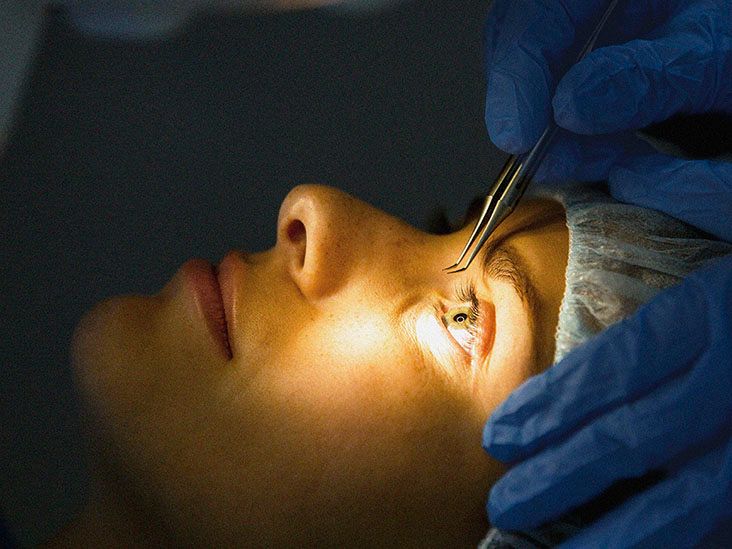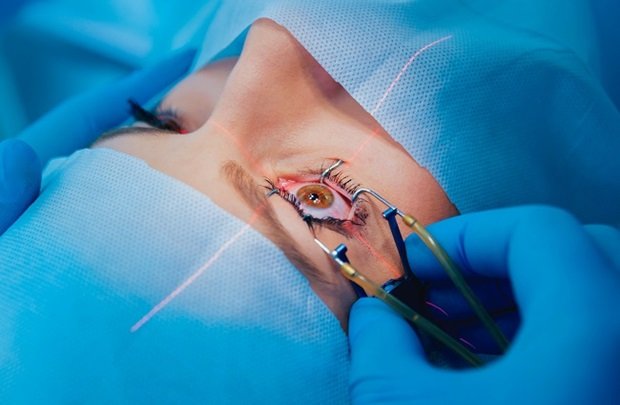Your Relied On Tallahassee Eye Doctors for Specialist Lasik Eye Surgery
Your Relied On Tallahassee Eye Doctors for Specialist Lasik Eye Surgery
Blog Article
A Comprehensive Consider the Different Eye Surgery Procedures Provided by Skilled Eye Doctors
In the world of ophthalmology, the landscape of eye surgical treatment procedures used by knowledgeable eye medical professionals is as diverse as it is advanced. From the widely recognized LASIK eye surgical treatment to the much less acquainted refractive lens exchange, each treatment holds the promise of vision correction and improvement.

LASIK Eye Surgery
The accuracy of LASIK eye surgical procedure provides individuals a transformative service for vision modification supplied by knowledgeable optometrist. LASIK, which represents Laser-Assisted Sitting Keratomileusis, is a popular refractive surgical procedure that improves the cornea to resolve common vision problems such as nearsightedness, astigmatism, and farsightedness. This outpatient procedure uses an extremely specialized laser to specifically get rid of microscopic amounts of cells from the cornea, permitting boosted concentrating power and more clear vision without the need for glasses or contact lenses.
During the LASIK treatment, the eye doctor creates a thin flap on the cornea using a microkeratome or a femtosecond laser. With its high success rate and quick healing time, LASIK eye surgery has ended up being a relied on method for accomplishing long-term vision improvement (Lasik Eye Surgery Tallahassee).
PRK Procedure
A very effective alternative to LASIK eye surgery is the PRK procedure, recognized for its successful outcomes in vision adjustment. PRK, or Photorefractive Keratectomy, is a kind of refractive surgical procedure that improves the cornea to deal with refractive errors such as nearsightedness, farsightedness, and astigmatism.
During the PRK procedure, the outer layer of the cornea, called the epithelium, is eliminated to access the underlying corneal cells. Unlike LASIK, which develops a flap in the cornea, PRK directly improves the surface area of the cornea. Ophthalmologist Tallahassee. This makes PRK an ideal option for individuals with thin corneas or other corneal irregularities that might prevent them from undergoing LASIK
Complying with the elimination of the epithelium, an excimer laser is used to sculpt the cornea to the preferred shape, dealing with the refractive mistake. The epithelium restores naturally over a few days after the treatment. While the recovery time for PRK is normally much longer compared to LASIK, numerous patients attain outstanding visual results with this procedure. PRK is a secure and effective alternative for people seeking to decrease or remove their dependence on restorative lenses.
Cataract Surgery
Cataract surgical treatment is a typical procedure performed to remove the cloudy lens of the eye and change it with a clear synthetic lens. This surgical procedure is normally done on an outpatient basis and is extremely successful in restoring vision. The gloomy lens, which is known as a cataract, develops gradually and can trigger blurred vision, trouble seeing in the evening, and sensitivity to light.
Throughout the cataract surgery procedure, the ophthalmologist makes a little incision in the eye and utilizes ultrasound technology to separate the gloomy lens. The fragmented lens is after that delicately suctioned out, and a synthetic intraocular lens look what i found (IOL) is put in its place. This IOL helps to focus light onto the retina, improving vision.
Individuals undertaking cataract surgical treatment are typically awake during the treatment, which commonly lasts around 15-30 minutes. Recuperation time is reasonably quick, with numerous individuals observing enhanced vision within a few days. It is crucial to comply with post-operative care guidelines supplied by the eye doctor to make certain ideal recovery and vision outcomes.
Refractive Lens Exchange
Refractive Lens Exchange, likewise understood as lens replacement surgery, is a treatment that involves eliminating the eye's all-natural lens and replacing it with a synthetic lens to deal with vision issues. This medical strategy is largely used to treat presbyopia, extreme hyperopia (farsightedness), and other refractive mistakes that can not be effectively attended to with traditional approaches like glasses or call lenses. Throughout the procedure, the natural lens is generally replaced with a costs intraocular lens (IOL) that can fix refractive errors and, in some instances, even stop the development of cataracts in the future. Refractive Lens Exchange is taken into consideration a reliable and safe alternative for individuals seeking to reduce their dependancy on corrective glasses and boost their total quality of vision. By talking to a skilled optometrist, patients can establish if they are ideal prospects for this type of surgery and review the possible benefits and risks associated with the treatment.
Corneal Transplant
Having attended to refractive mistakes via procedures like lens replacement surgical treatment, proficient eye medical professionals additionally offer corneal transplants as a service for particular eye problems. A corneal transplant, also called corneal grafting, includes changing a harmed or unhealthy cornea with a healthy and balanced contributor cornea to enhance vision. This procedure is commonly suggested for people with conditions such as keratoconus, corneal scarring, corneal abscess, or corneal thinning.
During a corneal transplant, the ocular surgeon removes the main part of the damaged cornea and changes it with a contributor cornea that is thoroughly matched for shapes and size. There are different kinds of corneal transplants, consisting of passing through keratoplasty, where the whole density of the cornea is changed, and partial thickness transplants like Descemet's removing automatic endothelial keratoplasty (DSAEK) or Descemet's membrane endothelial keratoplasty (DMEK), which replace just the internal layers of the cornea.

Conclusion

In the world of ophthalmology, the landscape of eye surgical treatment treatments provided by knowledgeable eye medical professionals is as varied as it is advanced.The precision of LASIK eye surgery offers individuals a transformative remedy for vision modification given by experienced eye physicians.Refractive Lens Exchange, likewise understood as lens substitute surgical treatment, is a procedure that entails getting rid of the eye's all-natural lens and replacing it with a fabricated lens to remedy vision problems.Having actually resolved refractive mistakes through procedures like lens replacement surgical procedure, competent eye physicians additionally offer corneal transplants as a solution for certain eye problems.In final thought, competent eye medical professionals use a range of eye surgery procedures including LASIK, PRK, cataract surgical procedure, refractive lens exchange, and corneal transplant.
Report this page